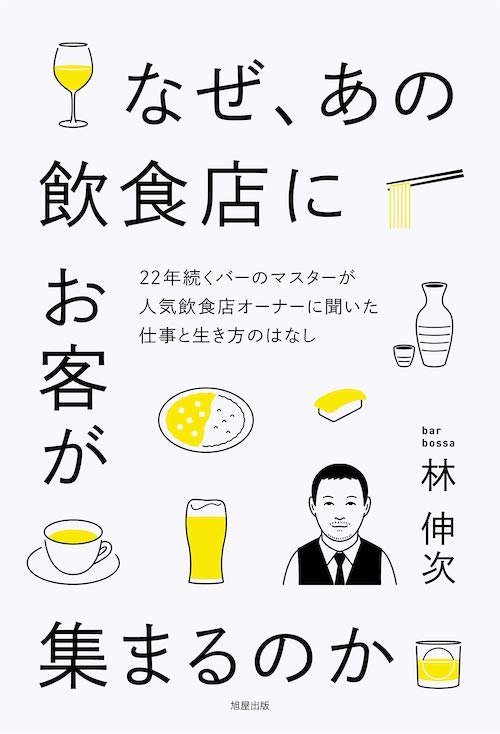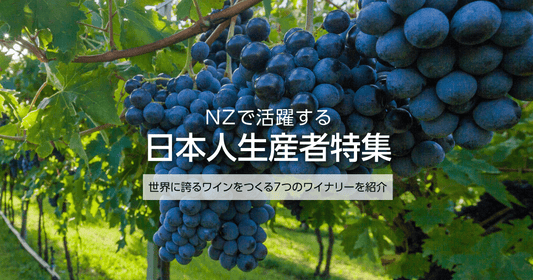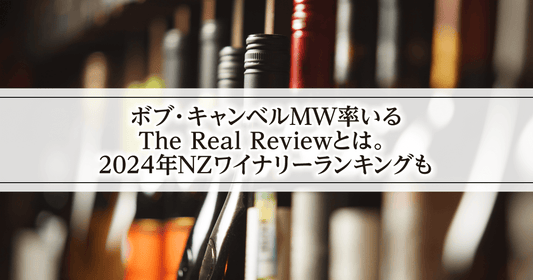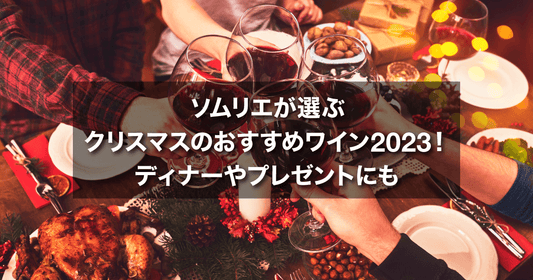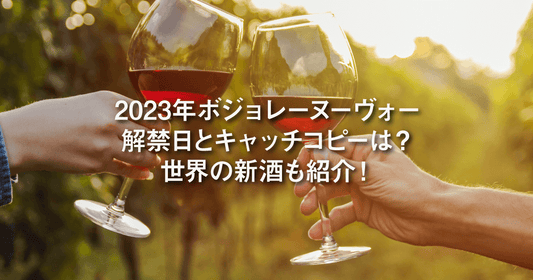There is a wine bar tucked away in a quiet back alley in Oku-Shibuya.
The name is "Bar Bossa."

The owner, Hayashi Shinji, works at the shop and is also active as a writer.
He has several serials in web media and has published many books.
And this communication ability has been of great help to the management of Bar Bossa.
His columns and love advice, written from a unique perspective that makes use of the bar owner's powers of observation, have attracted many people and are receiving a lot of attention.
Shinji Hayashi|PROFILE
Born in Tokushima Prefecture in 1969. Owner of the Shibuya wine bar "bar bossa". After working at a used record store, a Brazilian restaurant, and a shot bar, he opened "bar bossa" in 1997.
While managing a bar, he is also active as a writer. He has many serials, including " Beyond the Wine Glass ," the most viewed serial of all time on cakes, " Bar Bossa's Shinji Hayashi's Daily Diary and Stories That Can't Be Written Publicly " on note, and " Beautiful Women Are Supercars " on LEON.
His major works include " Love Always Begins and Ends Casually (Gentosha)" and " Why Do Bar Masters Wear Ties? ".
Twitter: @bar_bossa
Hayashi published a book in November 2019.
Why do so many customers flock to this restaurant?

This book is based on interviews with 20 of Tokyo's most popular restaurants.
- Why is that restaurant so popular?
- What is so great about that thriving restaurant?
This is a collection of interviews compiled from Hayashi's unique perspective, including the following:
This book will help people who are thinking about opening a restaurant to more concretely imagine opening a business, by describing the joys and thrills of running a shop, as well as the real business circumstances behind the scenes.
And along with the release of this book, Hayashi himself made the following statement on note and social media.
Even if it's your first interview, please feel free to interview me about my new book on note or other platforms | Shinji Hayashi @bar_bossa #note https://t.co/zZUhy0JHlK
— Shinji Hayashi (@bar_bossa) November 25, 2019
Iwasu, the sommelier who manages and supervises this site, responded immediately to this surprising announcement!
In fact, Iwasu has been one of the people who has been influenced by Hayashi's style for some time.
This is because Hayashi and Iwasu had a lot in common.
In addition to running a restaurant, Iwasu's activities are diverse, including managing and supervising this website and working as a radio scriptwriter.
Wine, restaurant management, bar master, and writing .
I saw these aspects of Mr. Hayashi in his character.
Although I wasn't able to go to Tokyo right away, after figuring out the timing, I was finally able to make the interview happen!
The location is, of course, Bar Bossa.
(This was conducted as a dialogue-style interview.)
We talked to him about a lot of things, including anecdotes about his new book, how he arrived at his current style, and some things that are a little difficult to ask about.
We hope you enjoy this special project with a slightly different twist!
The interview for this article was conducted on February 6, 2020, before the COVID-19 state of emergency was declared.
Until the creation of "Why do customers flock to that restaurant?"
Iwasu : Thank you very much. First of all, for those who don't know you, could you tell us how you came to publish this book?
Hayashi-san : Yes, this is going to be a bit long. There is the former Governor of Tokyo, Naoki Inose. I really like him and have read almost all of his works. When he was still unknown, he published a collection of interviews called "Nihon Ordinary People's Tales." The book features famous people, but he also interviews so-called "ordinary people." After reading it, I thought, "Interviews can be so interesting. I want to publish an interview collection someday," but the plan never got approved. Then, I was asked if I would like to do a serial in Asahi Publishing's magazine " Cafeless ."
Iwasu : Cafeless is a famous food and beverage industry magazine.
Hayashi-san : Yes, that's right. At first, I think they probably wanted something like a column about restaurants. But I thought this was a chance. Since it was a good opportunity, I thought it would be more than just a column, but I would interview various people in a more in-depth way, including about money. Since it's an industry magazine, I thought I could do interviews that people who want to open a restaurant would read. So I actually serialized it and compiled it into a book. So, it was a book from the beginning.
Iwasu : I see. How did you choose the stores to feature?
Hayashi-san : First of all, I chose the restaurants from the ones I know and like, thinking that it would be interesting to talk to people like that. But then I talked with the editorial department and we decided to find a better balance.

The reason is that the restaurants I know tend to be all about wine and music. We thought it would be better for readers if we introduced more soba, sushi, yakitori, and tempura.
Iwasu : So you also received a proposal from a publisher.
Hayashi-san : Yes, there were also suggestions like "Please try this restaurant." For example, I like soba restaurants now.
Iwasu : It seems like it (laughs). Reading your note , it seems like you eat it every day.
Hayashi-san : Ah, thank you for reading (laughs). I really feel that soba restaurants have potential. But I couldn't find a place that really stood out among the young people. After all, there are many better soba restaurants in older places. I went around a lot hoping to find one, and I found a restaurant that I thought was good, and I was able to include it without any problems. However, I also went around a few yakitori restaurants, but I couldn't find one that I wanted to introduce in this book. So there were a lot of twists and turns.
Iwasu : Do you go there as a customer before the interview and then decide whether to publish it?
Hayashi-san : Yes, I went to a lot of them as a customer. The criteria for listing were "young," "new," and "profitable" (laughs).
Iwasu : I'm making money (laughs)
Hayashi : That's right (laughs). This book is a suggestion to people who are currently having trouble at work that they could make a lot of money by starting a restaurant.
The hidden theme is "Start a store with 3 million yen and make 10 million yen a year."

Hayashi-san : The underlying theme of this book is starting a business with 3 million yen and earning over 10 million yen a year . Of course, I know it's not that easy (laughs).
Iwasu : I see. By the way, I started my own restaurant 10 years ago, and I read a lot of books like that, and they influenced me a lot. I often read "Nikkei Restaurant" and "Monthly Restaurant". Also, in magazines there are features like "You can start a restaurant for XX yen". I must have bought about 50 books like that at the time.
Hayashi-san : Actually, when I started making this book, I noticed that there is a genre called "start-up books." It seems that this genre always sells a certain number of books. There are many people in the world who want to open a restaurant. But even if they buy a book, they don't actually do it. It seems that many people just read it on their days off and spend their time thinking, "I want to open a coffee shop like this."
Iwasu : Books like this only feature successful businesses and don't include any examples of failures, so it makes you think it might be possible.
Hayashi-san : Yes, I heard a lot of stories about people who failed while making this book. But I can't include stories about people who failed (laughs).
Iwasu : I was in the radio industry, so when I opened my own store it was a completely different genre. But having a book on opening a store like this can make it easier. But of course there was the risk of failure, so at the time I was reading it thinking, "This book says this, but this one says something different." So, if I'd found this book a little earlier, I think I could have kept my initial costs down (laughs).
Hayashi : Everyone says that (laughs). By the way, Iwasu-san, did you start out without working at any restaurant?
Iwasu : No, I had about a year to prepare, so I actually worked at a restaurant in Shinjuku for a while. But I ran out of money, so I went back to Nagoya and worked part-time at an Italian restaurant while working as a radio director. There, I was taught how to work in the dining area and the kitchen.
Hayashi-san : Did you say you would quit eventually when you joined the company?
Iwasu : I didn't say anything when I first joined, but I started hinting at it halfway through... (laughs)
Hayashi : (laughs)
Iwasu : It's hard to get hired if you're going to quit right from the start. Of course, if I was in the other person's position, I'd be a bit hesitant. But thankfully, I'm still able to build a good relationship with the store that helped me out back then.
Hayashi-san : I see, that's good. Usually it ends up being a half-baked relationship. When I trained as a bartender, I asked if it was okay to stay for two years because I wanted to do it myself, and they said, "Sure," and let me in.
Iwasu : Two years is quite a long time, isn't it? I see.
Iwasu : I'd like to go back to the topic of the book for a moment. Are there any common points among the shops featured in the book? From what I've seen, I thought they were "people who aren't doing anything they don't want to do."
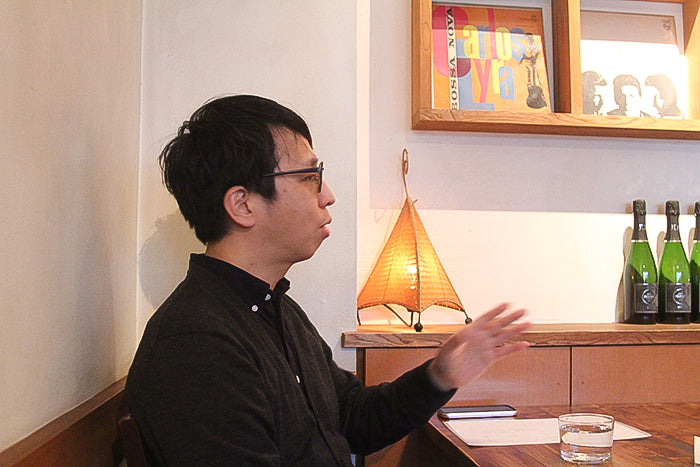
Hayashi-san : No one is putting up with that kind of resistance. Somewhere along the line they've decided, "I'm not going to do this." I think it's the same for places other than restaurants, but it's a matter of finding the right compromise.
Iwasu : That's true. It's about the balance between competing with what you put out yourself and understanding the needs of the public and turning them into money. But usually, when I put forward what I want to do, it's like, "It didn't work at all..." (laughs) I've been doing this for 10 years, and that still happens (laughs)
Hayashi-san : Oh, I see. (laughs) For example, what kind of discrepancies are there? I love hearing about that. (laughs)

Iwasu : I put out a new menu, and I thought about it carefully, but it didn't work at all. I even made a POP and such. Also, we have two stores, and we have a discount for customers visiting the other stores, but they never visit the other stores (laughs).
Hayashi -san : Are they completely different types of establishments that you can visit multiple times?
Iwasu : Yes, they are completely different formats. The main store is run by 3-4 staff members, but the other one is a dark bar run by a single person.
Iwasu : As a customer, there's a sense of security that comes with being in the same chain.
Hayashi : There definitely is.Iwasu : I also think that if I were to work in a bar, it would be tough unless it was in a hotel lounge or some other location with a steady stream of customers. But those are places that an individual would never be able to invest in. I think it would be okay if you were employed at a place like that. But our bar has also increased the amount of soft drinks we serve. There was a time when I used to get annoyed when people would use us like a cafe, but now I think it's fine if they still come (laughs). It's impossible for someone to come just to drink tea at this bar, right?
Hayashi-san : That's right. But actually, when I first started the shop, I put an espresso machine in. 23 years ago, espresso was still fashionable (laughs). NHK is nearby here, so there are a lot of people who have meetings in the middle of the night, and four of them came and asked for four hot coffees (laughs). They had their documents spread out on the table for about two hours. So I thought this wasn't good, so I stopped selling coffee and gave the machine to someone (laughs).
Hayashi-san : But this kind of thing is called "location". For example, when I talk about this coffee to people who run shops in Nishi-Azabu, they say, "I can't imagine that happening." And "Water is fine." In Nishi-Azabu, cheap wine that costs around 1,200 yen is sold for 10,000 yen (laughs), so even now I hear that the "Water is fine" problem is rare.
Iwasu : Tokyo has a very clear "city color." There are unwritten rules like, "It's a bit strange to do this kind of thing here."The city of Shibuya and shop rent
Iwasu : By the way, what was Shibuya like during the Rugby World Cup?
Hayashi-san : We weren't that big of a rugby fan, but I think there will be a lot of people coming for the Olympics. However, there are no people there at all now because of COVID. There is a craft beer shop right there, but it's empty.
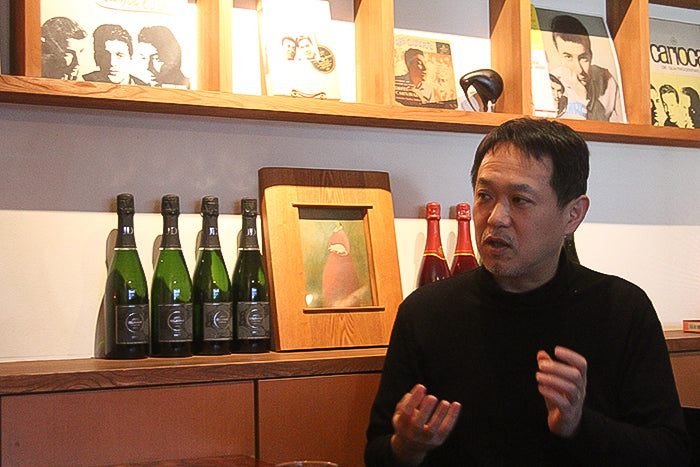
Iwasu : I walked around Oku-Shibuya for the first time yesterday. When you go to a street-front store, you can tell if there are customers inside or not. But there were no customers inside at all, and I wondered what was going on. I walked around with a bit of a shiver in my chest.
Hayashi-san : There are no people in Shibuya right now. I think Shibuya is the first place to plummet if you tell people not to go to crowded places. It's the first place to see the effects of trends, 3.11, Halloween, and so on. For example, if there's a big earthquake, sales for that day will plummet. But that doesn't happen much in Ginza.
Hayashi-san : Of course it's expensive, but it's probably not as expensive as you'd think. Shinjuku is three times more expensive than Shibuya.
Iwasu : Eh? Does that mean the clientele is good?
Hayashi-san : I asked someone who runs a shop in Shinjuku, and it seems like there are an overwhelming number of customers. The number of people getting on and off at Shinjuku Station is overwhelmingly large. But there aren't that many shops. Well, there are a lot of them, but they're small in terms of the population. The number of shops doesn't match the population of people wandering around. And the stylish shops are only in Shinjuku 3-chome, where the rent is high, and the prices are a bit high.
Iwasu : Also, they're so desperate to keep customers turning over that the service is very brusque, and the moment you sit down they ask, "Is an hour and a half okay?"
Hayashi-san : Yes, it really does take an hour and a half to turn it. An acquaintance of mine once said, "If we don't turn it, it will go bust."
Iwasu : I believe the price here is 20,000 yen per tsubo. Is that cheaper than the market price around here?
Hayashi-san : It's really cheap here. Tokyu Hands is the only expensive place. But around here, there aren't many tourists, so it gets cheaper and cheaper. That's why Oku-Shibuya became so popular. It's a little more expensive than it used to be, but it's still way cheaper than Ebisu or Daikanyama. It's cheaper than Nakame.
Iwasu : Prices around Nagoya Station in Nagoya are rising rapidly right now, with ground floor property prices starting at 30,000 yen per tsubo.
Hayashi-san : But there are always people walking around Nagoya Station, so it's always full, right?
Iwasu : There's a bit of a fever at the place called "Meieki 3-chome" right now, with a lot of people. But it's been quite recent. If it were me, I'd be a bit nervous... (laughs) Small local places have tried and closed down over and over, and in the end, it's become all chain stores.
Hayashi-san : With chain stores, even if one place is no good, there's always another, so even if things are a little off, it's okay. By the way, how much is Iwasu-san's store?
Iwasu : Ours is less than half the size of Hayashi's shop. But it's on the basement floor of a really remote place (laughs).

Hayashi-san : Wow! It's cheap! But when the rent is cheap, you don't have to worry.
Iwasu : I still get a bit nervous though (laughs). We're doing it in a fairly large space. About 18 tsubo.
Hayashi-san : Even so, it's still 180,000 yen. It's easy to do because you don't have to deal with customers or be cold.
Iwasu : We can't be cold to our customers. If we did that to our store, they wouldn't come. They've come all the way out of their way to come here, so we want them to stay as long as possible (laughs).
Hayashi-san : It's nice to let customers relax and make them think, "That place was great, I want to go again."
Iwasu : That's right, it's a restaurant where you can even try dessert. However, the nearest station to the restaurant is called "Yabacho", and when I researched it before opening the restaurant, I found out that it had the highest number of passengers among all the stations in Nagoya that don't require transfers. It's a little behind the station in an area that's not well known, but when I looked into it, I found out that it was surprisingly close to the station. Also, the station is directly connected to "Nagoya Parco", which had the highest sales of all Parcos in the country.
Hayashi : Oh, so it can be used on dates too.
Iwasu : That's right, that's why there are a lot of couples on Saturdays.
Hayashi-san : But if they come in and think, "That place is kind of stylish," then I think it makes me happy. If you have work outside of the store like Iwasu-san, you don't have to worry about making ends meet with the store, so I think it's nice to have a place filled with young people.
This is the end of the first part.
We asked him about his new book , "Why do customers flock to that restaurant?" and about restaurant management.
In the second part, we talked about restaurant owners having other jobs and how they can combine them with the restaurant's revenue. Of course, the topic also touched on wine.
▶ Writing, income balance, and wine | Special interview with bar bossa owner Shinji Hayashi - Part 2
▶ Why do customers flock to that restaurant? (Amazon)

